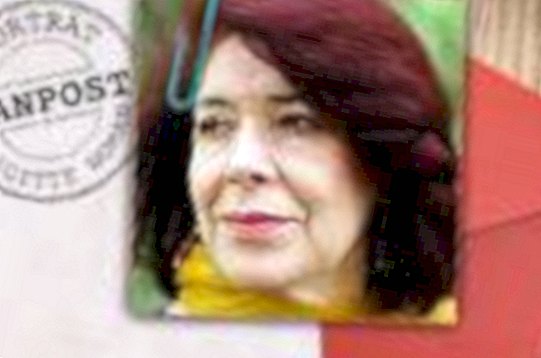Assia Djebar: The voice from the Maghreb

Dear Assia Djebar,
you probably will not like the following lines, you do not like it when wind is made around your person. Sorry, that I still write them, but sometimes I just think the world would be a better place if there were more people like you. That's too much pathos for you, I know. "I'm not a symbol, I'm just writing," you said, after you were admitted to the Académie Française, this spiritual hall of fame of the French. As the first author from the Maghreb.
"The Maghreb," you once said of your homeland, "refuses to read literature, where it is unthinkable for women to write, to embroider, to tattoo or to weave carpets, to write, to expose themselves, if a woman dares to To act as a writer, she puts herself on the level of dancers, she is considered a commercial woman. "
You did it anyway. As a "writing whore," you promptly swore at Algeria's virtue guard when your first novel, "Thirst," appeared in 1957, in which you describe how a young woman discovers love during a summer. They were just 20 years old and had chosen a pseudonym for fear of hurting their family's feelings: Assia Djebar. Djebbar means irreconcilable in Arabic.
I also like your real name: Fatima-Zohra Imalayène - that was the name given to the little girl born in 1936 in Cherchell, near Algiers. It grew up in a colonial world where there were always "ours" and "the others". They have overcome all the hurdles, limitations and prejudices, were the first Algerian at a French elite university after high school in Blida, today are an award-winning writer whose books are translated into 21 languages, are a filmmaker and teach at the same time at New York University French literature. How did you do it, Madame?
Assia Djebar gives a voice to the women of Algeria
From the beginning, women in Arab societies are your big topic. They gave a voice to the women of Algeria, locked in and out of society for generations. Women who lead a "life in the invisible," as you call it, in a country where "all daughters are cheated of their heritage with impunity by the sons of their fathers." In a society in which the relationship between man and woman outside the family is characterized by so much harshness and harshness that it leaves you speechless, as you said in your acceptance speech at the awarding of the Peace Prize of the German Book Trade.
It was awarded to you in 2000, the horror of September 11 was not yet in sight, but Algeria had suffered for years under the terror of Islamist fanatics. The fight against terror has become your second life theme. When you lost friends in attacks in the 1990s, you vowed to write to circle the tireless pursuers.
Do you remember the reasoning of the Peace Prize jury? "In her work she has set a sign of hope for the democratic renewal of Algeria, for the inner peace in her homeland and for the understanding between the cultures." Her acceptance speech was given to three writers murdered in Algeria.
Now your new book has been published by us. "Nowhere in my father's house" It is said, and this time you are as close to yourself as never before (21.95 euros, Fischer).
They tell from their own story, which is also the history of Algeria. They describe the growing up of a girl in the shadow of his father. A father who wants to be a modern man. Treating his wife as a partner and attaching importance to the education of his daughter, but yet in the straitjacket of strict traditions. A father forbidding his five-year-old daughter to ride a bicycle because he does not want the whole world to see her legs ...
It's a rough task, I've read in your epilogue, "if you dare to write about yourself, that confession that could easily lead to complacency, worse to walk around in front of the mirror."
love Assia Djebar"There's nothing to read about complacency in this book, and even if you did, a little pride would make you feel good.
Your Luise Schenk
PS: At least do it, if you win the Nobel Prize for Literature!










